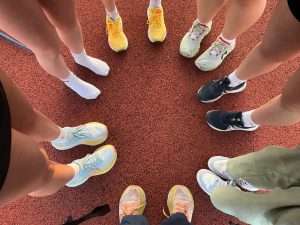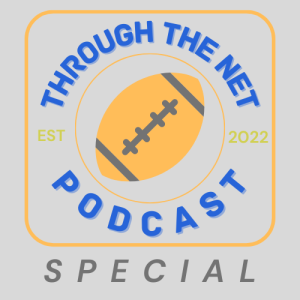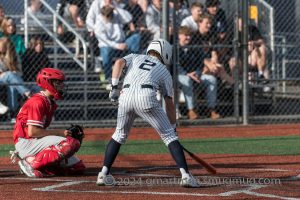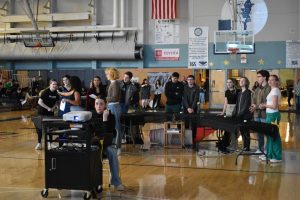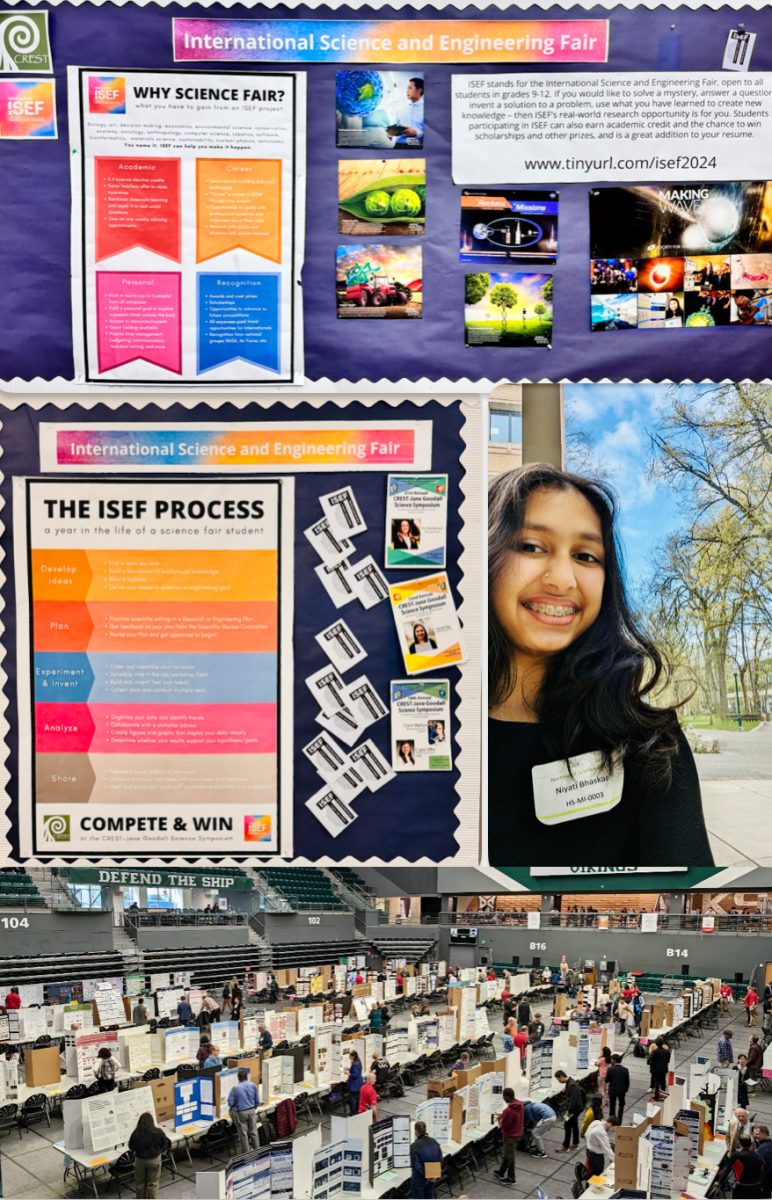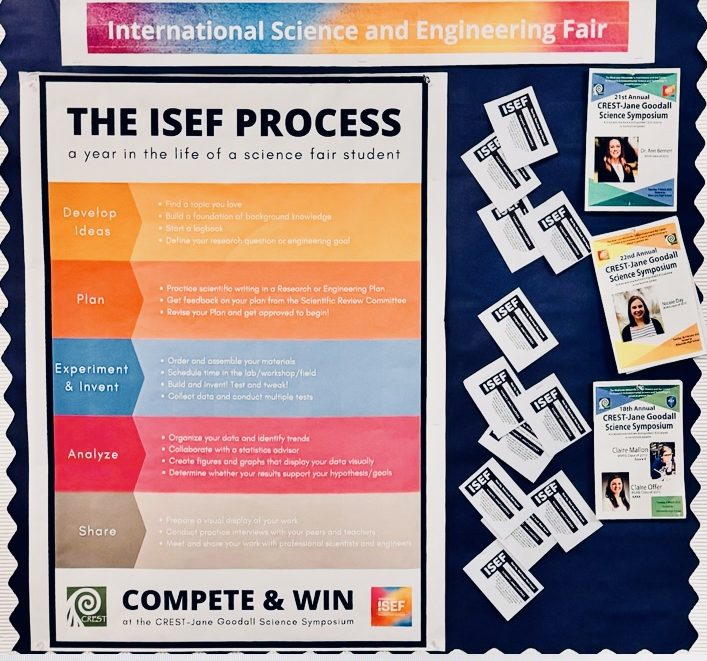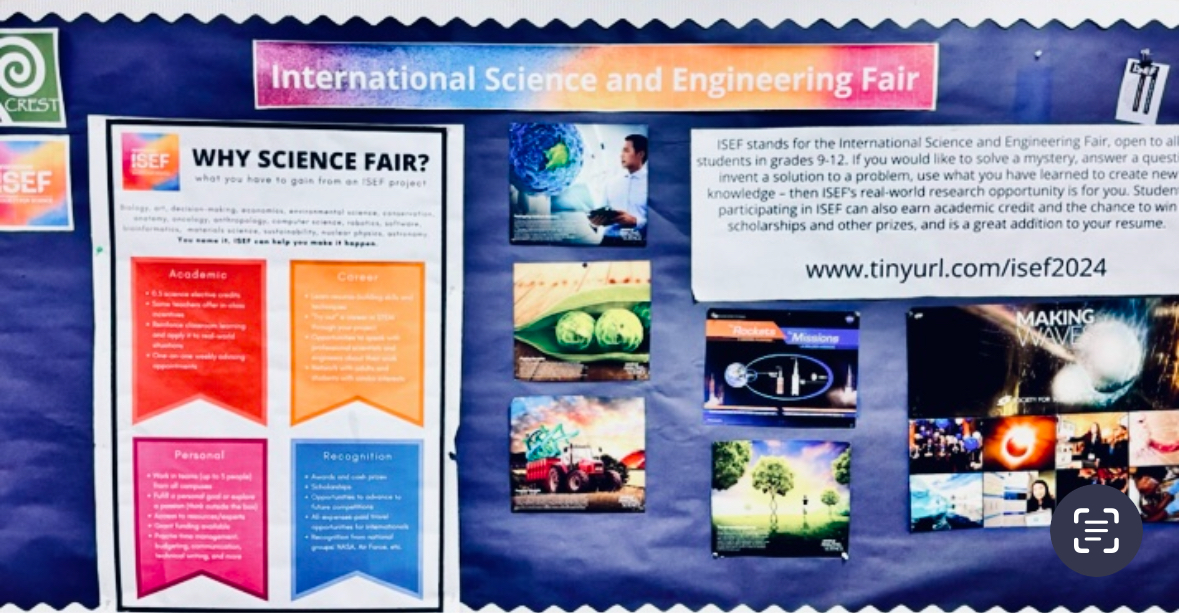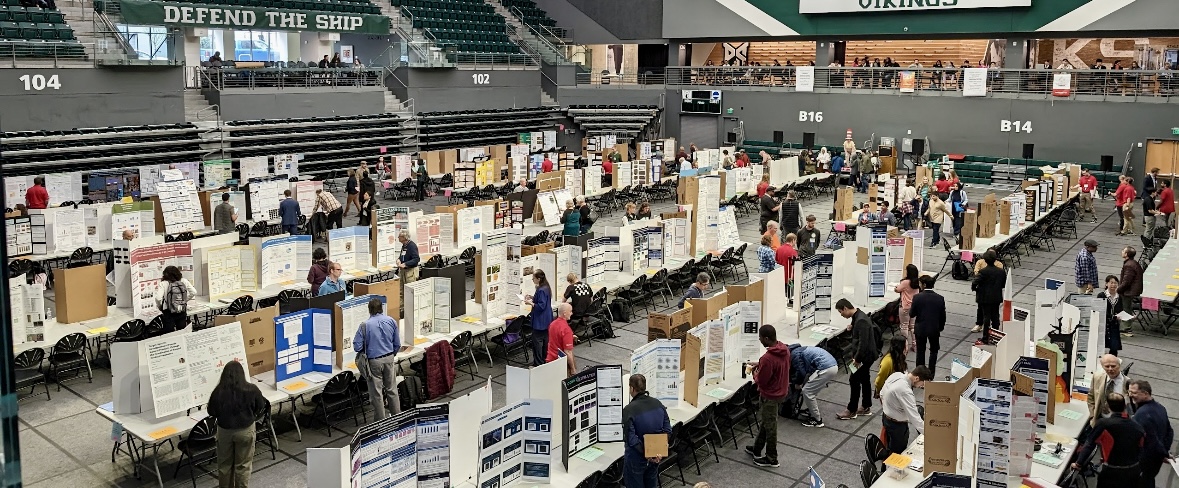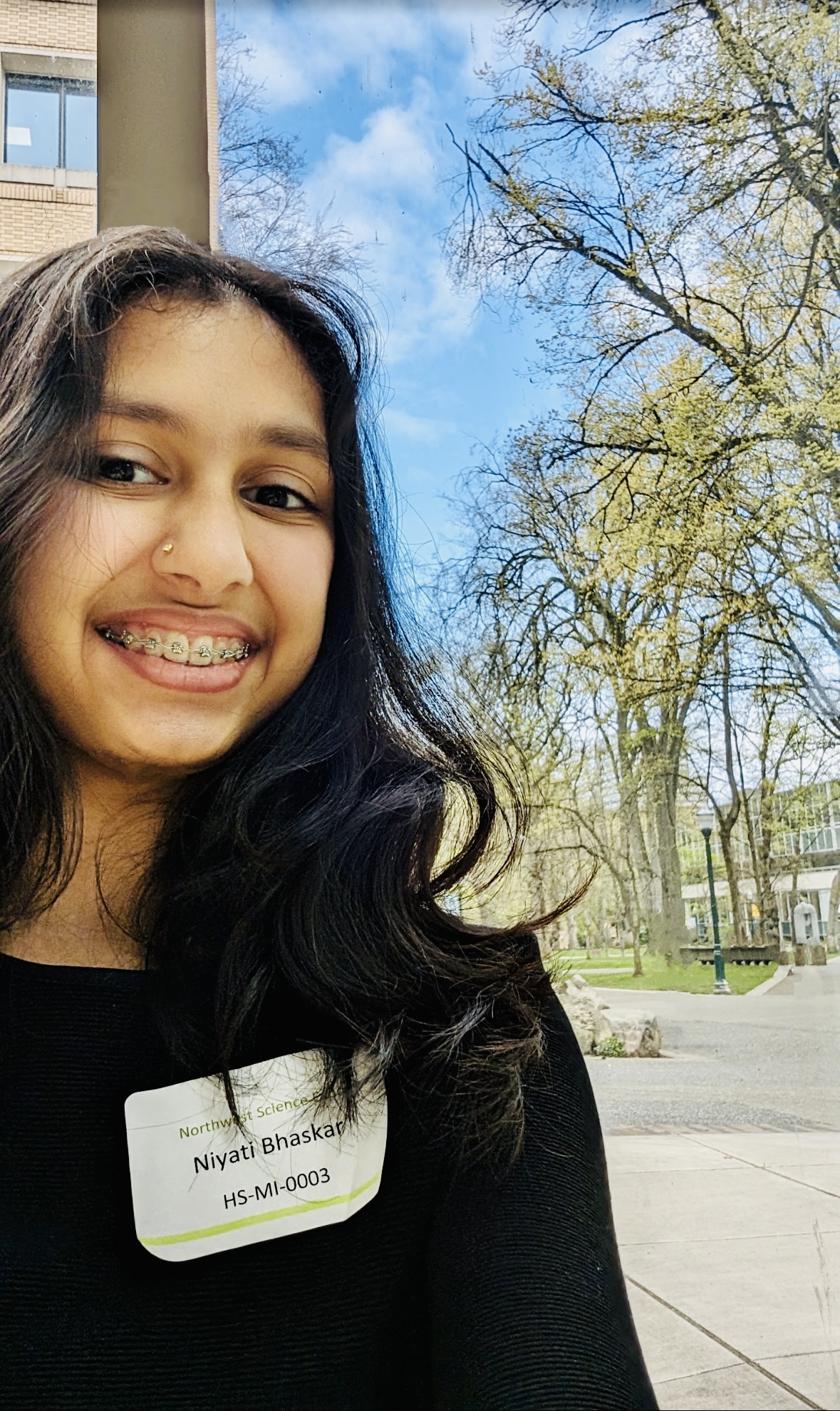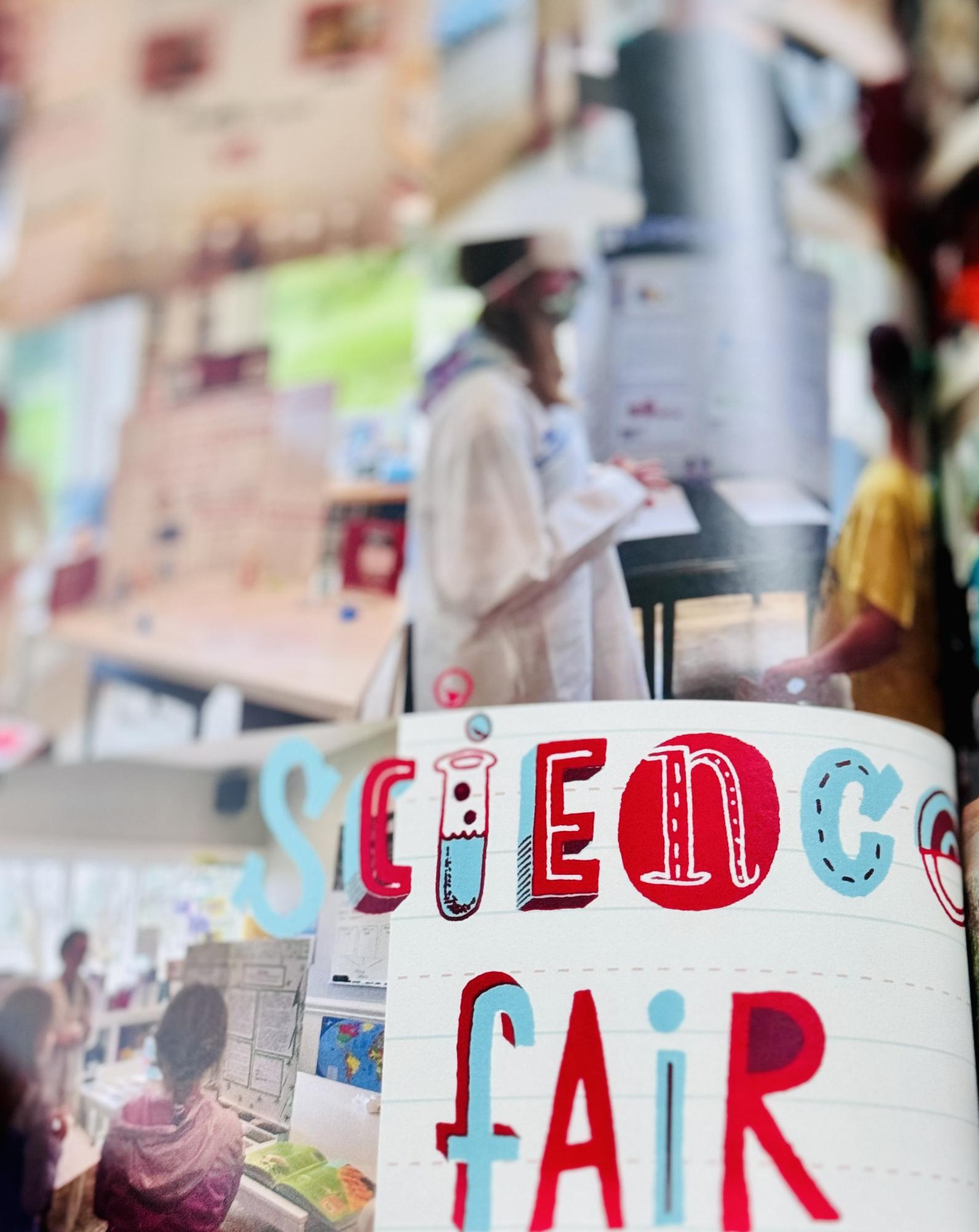Covering numerous content areas of science and engineering, the annual ISEF contest showcased around 1,500 students from across 80 regions. Held at West Linn High School, contestants set up in-depth representations of various concepts, teaching judges and community members about various topics.
Students chose a topic from a wide range of contents. From technological medicine and statistical analysis to engineering research, physics, and astronomy, ninth through twelfth graders were given opportunities to present their ideas and some were even rewarded for outstanding entrepreneurship.
As outside observers, students may underestimate the effort and attention that went into the preparation for this major event. To better understand this journey, freshman Niyati Bhaskar interprets her experience. Bhaskar has been involved with ISEF since 6th grade, and recalls the preparation process as a new high schooler by describing, “There are five main phases for conducting a research project: Developing ideas, planning, experimenting and inventing, analyzing, and sharing or competing.”
Beginning in stage one, Bhaskar emphasizes the importance of developing ideas by stating, “It’s finding your passions!” For Bhaskar’s case, this meant entering the realm of microbiology, where she dug into environmental hazards.
“Algae blooms, particularly Cyanobacteria Anabaena, endangers marine wildlife and humans,” Bhaskar explains. Many ISEF participants aspire to accomplish or discover a strategy/solution to benefit humanity or a certain species. Bhaskar aims to eliminate use of chemicals to interfere with Anabaena and alternatively, create a naturalistic product to diminish excessive algae blooms and Nitrogen clots in saltwater habitats.
These projects may seem unimaginably complex or advanced, but some ISEF projects will move forward and be used to better society and environments for living. Students even created their projects in tandem with a friend.
Other ISEF members, Lily Vu and Yubin Kim, spent the past weeks collaborating. When asked about challenges they faced, they responded with, “The biggest challenge we’ve faced is not the project itself, but the fact that our schedules don’t match up.” In the beginning stages of ISEF, it’s crucial yet difficult to manage time, especially when networking two high school students’ schedules.
Vu and Kim relied on efficient communication and reliability to execute their expectations.
Once students have designated time to accomplish these projects, the phase of planning and preparation really begins.
In Vu and Kim’s case, they needed to strategize their time-sensitive experiment since they were measuring data from the night sky. Many factors such as weather conditions and clarity from their viewpoint affected their experimenting.
During this time, Bhaskar formatted how she’d conduct her chemical tests. She was able to use resources like bacteria, plants, and combinations of elements to demonstrate her explanations.
Wilsonville High School supplies ISEF with many materials and instruction, especially from administrators Danielle Schroeder and Tiffini Stephens. Vu and Kim articulate the impact Schroeder and Stephens had in their experiments as they recall not shying away from asking questions and clarifying when they were unsure. “Should either of us need help,” Lily Vu begins, “We aren’t afraid to reach out to each other or ask a mentor.”
Bhaskar tested by using microscopes and kept data in a logbook which she says, “Is a formal record of the project online or within a physical notebook.”
Phase four requires students to specifically detail, tracking their experimental progress and confirming their understanding. Logbooks were popular techniques of recording information among ISEF scientists. According to Bhaskar, “Keeping a logbook from the very beginning of my thought process has been very helpful, as I can find every single thing I can put into my presentation.”
Logbooks prestructure the representation of enriching analysis, which is helpful when moving into the final project. As information was compiled, ISEF students began constructing templates and descriptions of their research. Bhaskar assembled a detailed, thorough, neat poster that she felt proud to pitch within her competition category.
Bhaskar helps break down the process of ISEF conventions. Round one entails District competitions, while fewer and fewer students are then invited to participate at the State level and eventually, Internationally.
Celebrating the 23rd Annual CREST-Jane Goodall Science Symposium, around 280 students gathered to be interviewed by professional scientists/engineers. Kim and Vu describe their preparation for this in exclaiming, “For judging, we made sure that we understood the aim of our project and could explain it clearly.” Vu and Kim emphasize the component of interviewing tactics and presentation poise in these competitions, which is a whole other aspect to ISEF.
Rounding out the finale of District ISEF, Niyati Bhaskar landed second place within the Microbiology group, winning recognition through awards and the chance to bring her project to State. Representing Wilsonville High School is Megan Whitt, the winner of the Microbiology category, and Aasha Patel, who will move straight to the International Fair, which takes place in Los Angeles this May.
Overall, Bhaskar reflects from her experience by saying, “My passion for Microbiology has definitely extended beyond academic interest; It drives me to learn about new ideas, people, and of course, research projects.”
ISEF restores more than intelligence within students. Presenting ISEF projects requires confidence, public speaking skill, and teaches major planning skills that can be applied in many aspects of school and future careers.
Yubin Kim shares his learning by remarking, “The most important skill for a scientific project is collaboration. It requires a lot of planning, communication, prototyping, and iteration for a project to be successful.” Lily Vu adds to these thoughts as she phrases, “Since this is my first year doing ISEF, I have improved my skills for reading scientific and nonfiction works, organizing, logbook documentation, and applying mechanical and 3D design knowledge.”
Many students have greatly enjoyed ISEF at Wilsonville and the course encourages students to participate.
“I believe that by fostering a deeper understanding of these issues and engaging in meaningful conversations, we can work towards a more sustainable and eco-friendly global landscape, using microbiology as a stepping stone along the way,” Bhaskar directly comments.
Danielle Schroeder compliments the ISEF board, stating, “Dr. Sabrina Levy Maoz returned to the district to share her keynote. The science fair team includes coordinator Tiffini Stephens, Gina Vadnais and at the middle school level, Jessamyn VanHook, Sarah Haefner, Laura Elia, and Becca Strohm. I am so thankful to work with this incredible team!”
Although ISEF is a highly accomplished, advanced program at Wilsonville, Bhaskar and other students have expressed their challenge with earning attention for its success. “The program is not being recognized as a part of the community. When the football team won state, it was announced to the whole school and congratulated at an assembly. However, when fellow ISEF-ers from our school win Internationally, there’s not a bit of celebration. This creates a disconnect in school with supporting STEM extracurriculars, which many of our students are a part of,” Niyati Bhaskar says.
It’s necessary to be aware and educated about the commitment and amazing work that Wilsonville students and peers accomplish alongside supportive administrators of the District.

